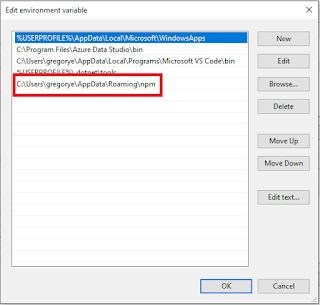Sorting A HashTable Object Using LINQ In C#.NET And VB.NET
In .NET, you can't directly sort a Hashtable object. A tip on sorting a Hashtable object is to cast it to Dictionary then apply LINQ OrderBy() method to the Hashtable object. See examples below:
VB.NET
C#
Output:

Cheers! :)
VB.NET
1 2 3 4 5 6 7 8 9 10 11 12 13 14 15 16 17 18 19 20 21 22 23 24 25 26 27 28 29 30 31 32 33 34 35 | Private Sub SortHashTableKey() hash = New Hashtable() hash.Add("B", 1) hash.Add("A", 2) hash.Add("C", 3) Dim dict = hash.Cast(Of DictionaryEntry)() _ .ToDictionary(Function(d) d.Key, Function(d) d.Value) _ .OrderBy(Function(e) e.Key) Console.WriteLine("Sort by Key") For Each item In dict.ToList() Console.WriteLine(String.Format("{0}, {1}", item.Key, item.Value)) Next Console.WriteLine(Environment.NewLine) End Sub Private Sub SortHashTableValue() hash = New Hashtable() hash.Add("A", 2) hash.Add("B", 1) hash.Add("C", 3) Dim dict = hash.Cast(Of DictionaryEntry)() _ .ToDictionary(Function(d) d.Key, Function(d) d.Value) _ .OrderBy(Function(e) e.Value) Console.WriteLine("Sort by Value") For Each item In dict.ToList() Console.WriteLine(String.Format("{0}, {1}", item.Key, item.Value)) Next End Sub |
C#
1 2 3 4 5 6 7 8 9 10 11 12 13 14 15 16 17 18 19 20 21 22 23 24 25 26 27 28 29 30 31 32 33 34 35 36 37 | private void SortHashTableKey() { Hashtable hash = new Hashtable(); hash.Add("B", 1); hash.Add("A", 2); hash.Add("C", 3); var dict = hash.Cast < DictionaryEntry > () .ToDictionary(d => d.Key, d => d.Value) .OrderBy(e => e.Key); listBox1.Items.Add("Sort by Key"); foreach(var item in dict.ToList()) { listBox1.Items.Add(String.Format("{0}, {1}", item.Key, item.Value)); } listBox1.Items.Add(Environment.NewLine); } private void SortHashTableValue() { Hashtable hash = new Hashtable(); hash.Add("B", 1); hash.Add("A", 2); hash.Add("C", 3); var dict = hash.Cast < DictionaryEntry > () .ToDictionary(d => d.Key, d => d.Value) .OrderBy(e => e.Value); listBox1.Items.Add("Sort by Value"); foreach(var item in dict.ToList()) { listBox1.Items.Add(String.Format("{0}, {1}", item.Key, item.Value)); } } |
Output:

Cheers! :)



Comments
Post a Comment